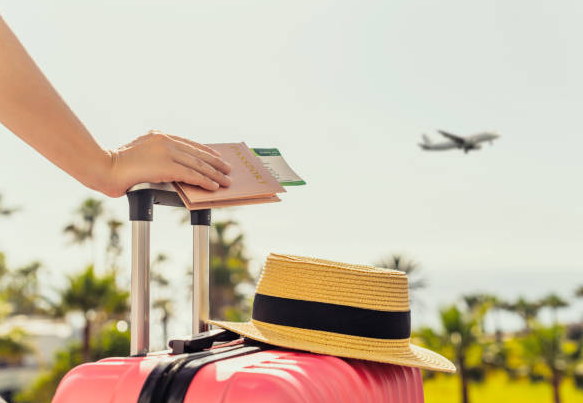Traveling to new, exciting destinations is a dream come true for many. However, while having fun and anticipation, it’s important to be wary of potential travel scams that could turn your dream vacation into a nightmare. By staying informed and taking some precautions, you can significantly reduce your risk of becoming a victim of fraudulent activities. In this article, Mr. Harish Khatri, Founder and Managing Director of India Assist Insights, presents five essential tips to help you avoid travel scams and ensure a safe and enjoyable journey.

1. Book trusted travel assistance
Before you embark on a vacation, consider booking a reliable travel assistance provider who can help you with services like emergency assistance and elderly assistance. These professionals have extensive experience in the travel industry and can guide you through a wealth of services, including last-minute travel and accommodation arrangements and overcoming language barriers. Quality travel assistance providers offer seamless communication through a variety of channels and even leverage technology to help travelers. Trusted providers can provide valuable advice to help you navigate unfamiliar destinations and minimize your chances of falling into scams.
2. Be wary of unsolicited offers
A common tactic employed by scammers is to offer seemingly too good to be incredibly enticing offers to unsuspecting tourists. Whether it’s a stranger offering discounted tours, accommodation, or exclusive offers, be careful before accepting any unsolicited offers. Research the legitimacy of the company or individual offering the offer, double-check their qualifications, and compare prices with other established travel providers. Keep in mind that if an offer seems too good to be true, it’s most likely a scam.
3. Protection of your personal information
In today’s digital age, protecting your personal information is paramount, and this principle becomes even more important when traveling. Avoid sharing sensitive data, such as credit card details or passport information, over unsecured Wi-Fi networks or with individuals you don’t trust. When booking online, only provide personal information to reputable companies and use secure websites. Also, consider using a virtual private network (VPN) to encrypt your internet connection and add an extra layer of security.

4. Keep loved ones informed
One of the easiest yet most effective ways to enhance travel safety is to let your loved ones know about your itinerary and whereabouts. Share your travel plans with trusted friends or family, including details of your accommodation, transportation, and contact information. Keep them regularly informed of any changes or unexpected developments during your trip. This way, people in your home have a rough idea of where you are and can sound alerts if anything goes wrong.
5. Seek local help
When exploring a new destination, seek guidance and assistance from your local government or trusted sources. Local authorities are often aware of common scams prevalent in their area and can provide valuable insights that can help you avoid falling prey to fraudsters. Visit a tourist information center or consult a reliable travel guide to familiarize yourself with local customs, common scams, and safe areas to visit. Local knowledge is essential to ensure a smooth, scam-free travel experience.
Final conclusion
While travel scams do exist, being well informed and taking precautions can significantly reduce the likelihood that you will be exposed to fraudulent activity. Book travel assistance with a trusted travel partner, be cautious about unsolicited offers, protect personal information, inform loved ones, and seek local help, so you can enjoy your trip with peace of mind. Keep in mind that being careful can go a long way in protecting yourself from scams and ensuring a safe and memorable travel experience. Bon voyage!
